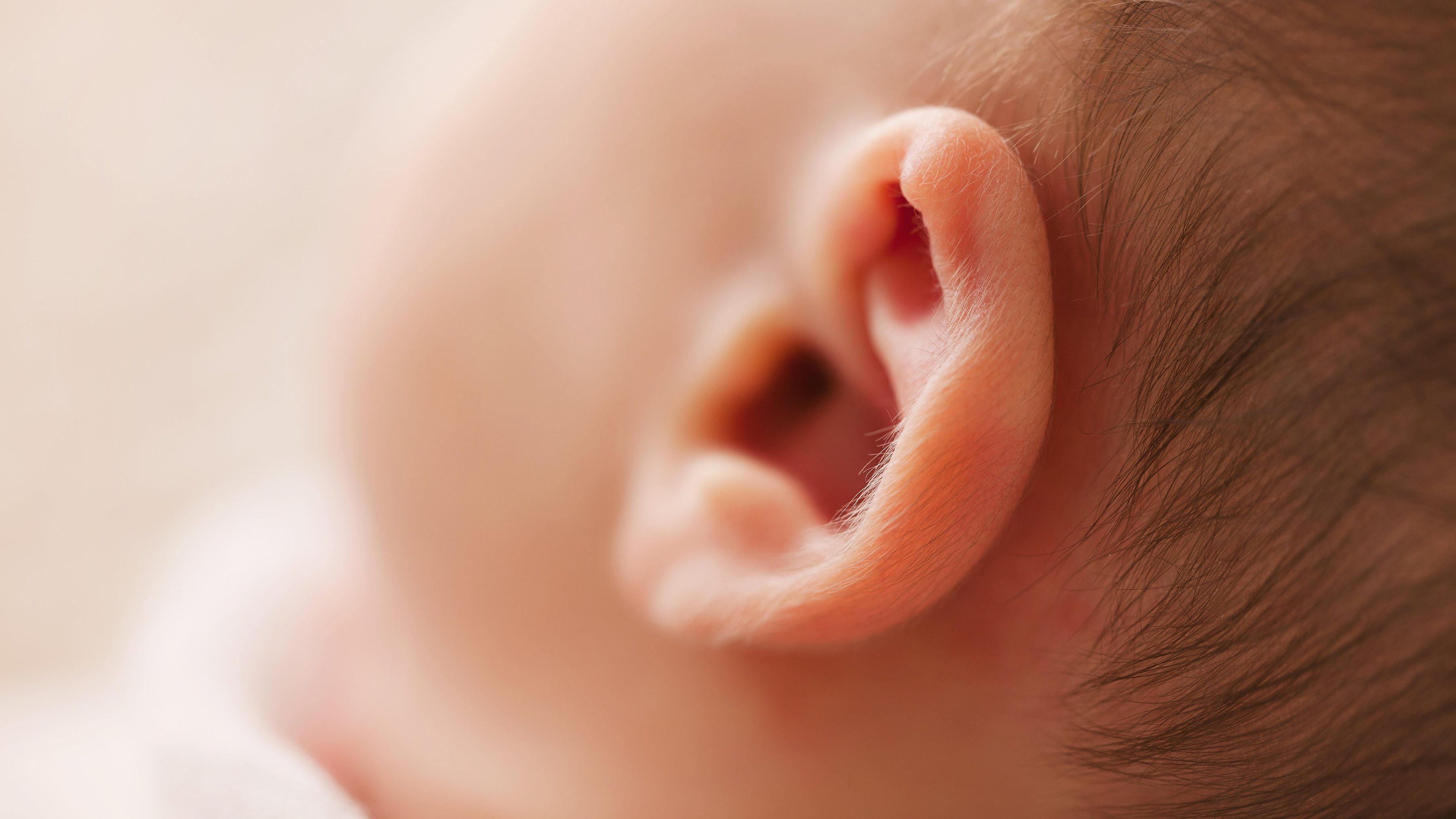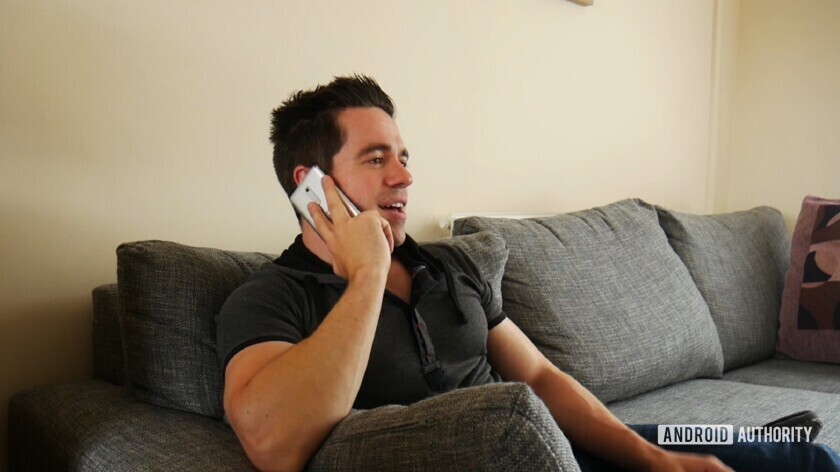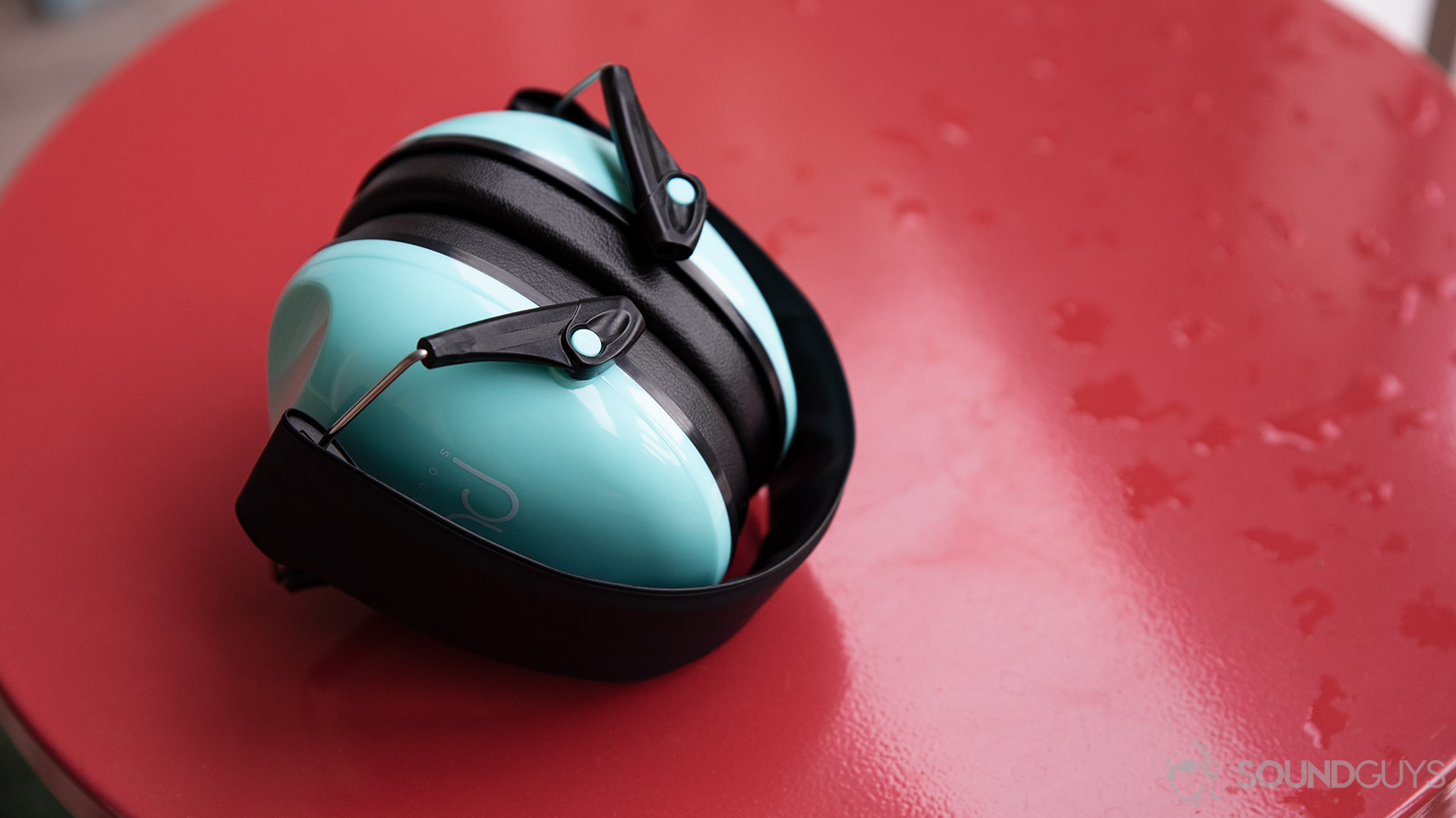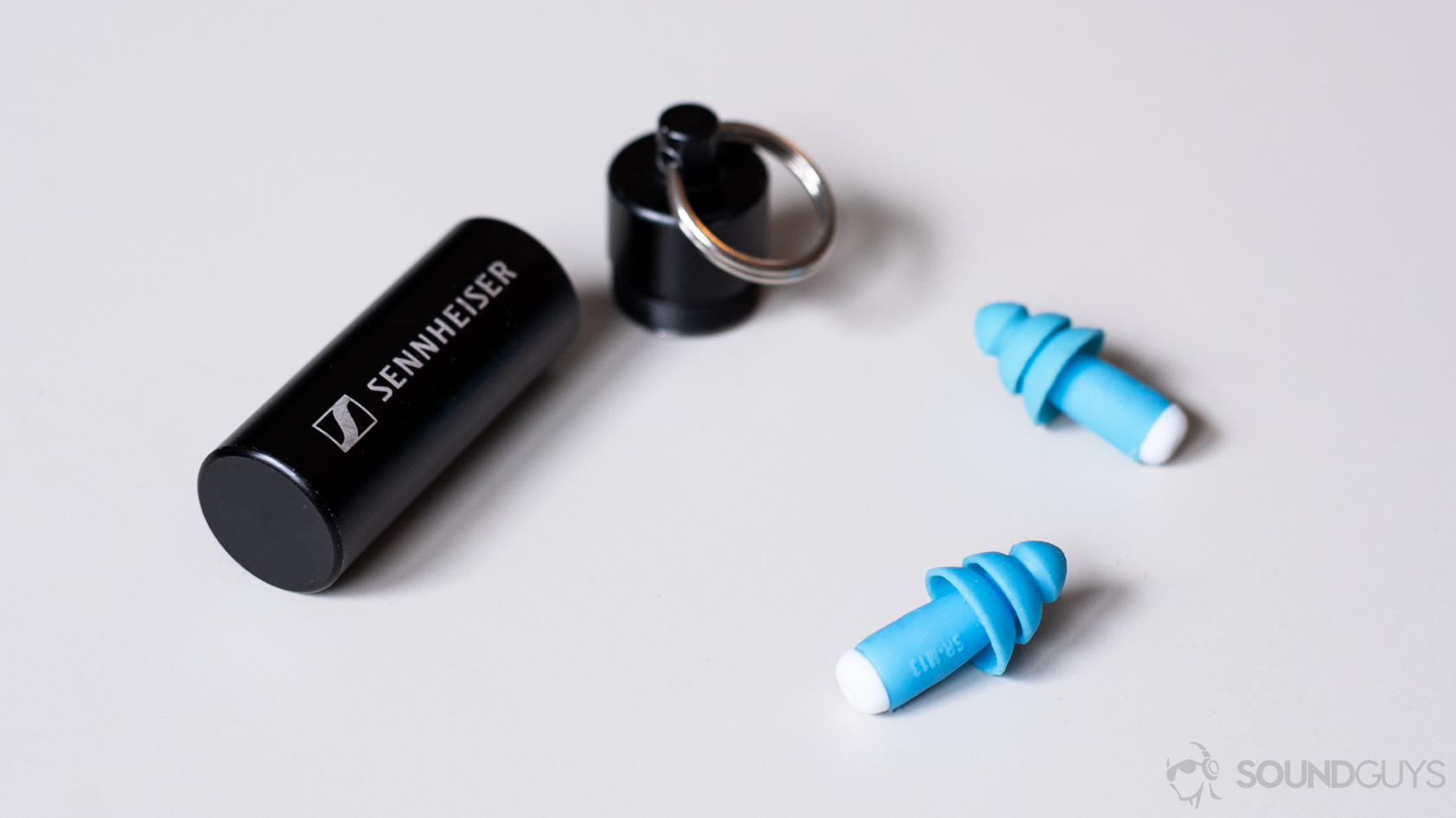All products featured are independently chosen by us. However, SoundGuys may receive a commission on orders placed through its retail links. See our ethics statement.
Types and signs of hearing loss
June 1, 2023
Have you ever caught yourself impatiently asking your spouse to repeat what they said? It may not be that they need to improve their enunciation; rather, you may suffer from any variety of hearing loss. Let’s look at some common signs of auditory damage and how to guard yourself against it.
Editor’s note: this article was updated on June 1, 2023, to answer reader FAQs, update the formatting, and ensure all information is current.
What are the common signs of hearing loss?
Before we jump into the three broad types of hearing loss, let’s cover the warning signs and symptoms as detailed by the CDC.
- Sounds, speech in particular, appear muffled. This can happen when your eustachian tubes are blocked from an ear infection or common cold. Although perceiving speech as muffled is a common sign, it isn’t something to immediately worry about.
- Difficulty registering high-frequency sounds like doorbells, telephone rings, and alarms.
- Difficulty understanding conversations when in a loud environment. This sign relates to the first one: as speech can be difficult to distinguish from background noise.
- Difficulty understanding speech over the phone.
- Difficulty distinguishing consonants. Many consonants can sound confusing, so we use the NATO phonetic alphabet when spelling things over the phone. Discerning speech over the phone is difficult enough without hearing loss issues, but those who struggle to discern consonants may find themselves particularly frustrated when speaking on the phone.
- Asking others to speak slowly and clearly.
- Asking others to repeat what was said or say something louder. As you can see, our ability to recognize and register speech is a strong indicator of auditory health. If you frequently find yourself iterating, “What?” you may not just be a selective listener. It could be that you’re suffering from noise-induced hearing loss.
- Increasing the volume during media playback (e.g., on the TV or through your headphones).
- Ringing in the ears. Concert-goers are likely familiar with this sensation: when loud noises cause an internal hiss or ring in one’s ears. It typically subsides, but it’s a potential sign of hearing loss if it occurs without warning.
- Hypersensitivity to specific sounds, particularly to loud noises. Noises that may seem loud but not uncomfortable to most people could cause others to wince in pain. If that’s the case, it can indicate hearing damage.
Who’s at risk for hearing damage?

A few factors come into play when addressing who’s more or less at risk for hearing loss. Unfortunately, sometimes it’s just a roll of the dice: genetics can affect one’s predisposition for auditory damage. Alternatively, damage may occur from physical injuries to the ear.
Chronic conditions like high blood pressure and diabetes can also be concerning. A study published in the Indian Journal of Otolaryngology and Head and Neck Surgery posits there exists a significant association between hypertension and hearing loss. The cardiac disease can catalyze the degeneration of hearing mechanisms typically associated with aging.
Hypertension and exposure to ototoxic chemicals are just a couple of risk factors to remain aware of.
Another major risk factor can be exposure to certain chemicals and medicine. The American Speech-Language-Hearing Association (ASHA) states that ototoxic chemicals may harm hearing and balance. One dangerous chemical many of us know to avoid is Arsenic. It’s largely known to cause poisoning but is also associated with hearing loss; the same can be said for carbon monoxide and toluene, often found in paint thinners. Workers who encounter dangerous chemicals should always use proper protection like a ventilation hood, mask, or gloves (when appropriate).
What are the three major types of hearing loss?
Sensorineural Hearing Loss (SNHL)
This is the most pervasive form of hearing loss, resulting from damage to the stereocilia, or hair follicles, on the inner ear and nerve pathways. According to the ASHA, this results in an inability or difficulty to perceive soft, high-frequency sounds and can even extend to loud sounds, which may be unclear. Typically sensorineural hearing loss can’t be remedied with surgery or medicine but can be mitigated with hearing aids. ASHA audiologist Paul Farrell shed light on noise-induced hearing loss.
According to the National Institute for Occupational Safety and Health (NIOSH), there are a variety of factors that can affect risk of noise-induced hearing loss. They include the noise conditions in which a person is exposed, how long you are exposed, biological factors, like gender, age, race/ethnicity, genetics and general health issues that can influence susceptibility to the effects of noise. When sounds are both loud and last a long time, these sound can damage sensitive structures in the inner ear and cause noise-induced hearing loss (NIHL). NIHL can be caused by one time exposure to an intense sound, or exposure to loud sounds over a period of time.—Paul Farrell, ASHA
Anyone can develop SNHL naturally due to aging, from noise-induced hearing loss, viral infections like meningitis, cranial trauma, tumors (e.g., acoustic neuroma), and ototoxic chemicals or medications.
Conductive Hearing Loss

Conductive hearing loss can be either temporary or permanent and is caused by issues pertaining to the outer or middle ear. Regardless of the anatomical location, conductive hearing loss prevents sound from reaching the inner ear, meaning its unable to be sent to and processed by the brain. The condition manifests as difficulty in discerning voices and general speech. Fortunately, there are medical solutions for those suffering from conductive hearing loss, including surgery in extreme cases.
An array of seemingly innocuous issues can cause this hearing condition: ear infections, fluid in the middle ear, eardrum perforation, excess earwax (note: do not clean your ears with Q-tips), tumors, and otosclerosis.
Mixed Hearing Loss
Conductive and sensorineural hearing damage may occur simultaneously; when this happens it’s classified as mixed hearing loss, resulting in damage in the outer or middle ear and inner ear or nerve pathway to the brain.
If you suffer from chronic hearing issues, a visit to the audiologist is worthwhile.
This type of damage may be caused by anything that causes SNHL or conductive hearing loss. An example given by the ASHA is of those who work near loud noises and also happen to have fluid in their middle ears. One can exacerbate the problems of the other.
There aren’t necessarily headphones built for tinnitus masking, but there are some great hearing aids for tinnitus masking.
How can you prevent hearing loss?

We aren’t here to scare you into walking around with hearing protection at all times, but there are prophylactic measures you can take to minimize the risk of SNHL. One of the easiest preventative measures is turning down the volume dial on our home theater system or favorite headphones. If you’re not in charge of the music, stepping away from the source may be easier. For those at festivals or concerts, take a break now and then from the hullabaloo, or carry around a pair of earplugs just in case. It’s crucial for you to limit exposure to loud noises, as prolonged listening can expedite the degradation process.
As far as the SoundGuys community is concerned, we’re best off refraining from those tempting volume increases as a means of shutting the world out. Those who often crank the volume may want to consider noise canceling headphones. Yes, good ones are expensive, but if you’re financially able to swing it, the cost is worth safeguarding your health.
Yes, headphones can technically cause tinnitus but only when misused. Long story short: headphones will only cause tinnitus if you listen at dangerous volumes for far too long. You can install a volume limiter on your phone, if it doesn’t already have one, to prevent this though.
What should you do if you think you have hearing loss?

Make sure you’re properly hydrated, not suffering from a cold or flu, and aren’t currently suffering from another condition that could impact your hearing. If you’ve ruled all that out: talk to your healthcare professional. They will know better than anyone online how to proceed with your needs based on your risk factors and personal history. It might be legit hearing loss, or maybe there’s a blockage. Your doctors will know how to test for these possibilities better than we.
Do not be afraid to talk to your doctors because the situation is often not as dire as you may think. Impairment can be temporary if it’s the result of an illness or blockage, but the only way to know is to go get it checked out.
If the worst happens and you have a case of hearing impairment that’s permanent, there are plenty of options on the market now that will be able to help in ways never made available to your parents — and they’re getting better all the time. With the announcement of Bluetooth LE Audio and the LC3 codec, those suffering from SNHL will experience increased functionality from compatible hearing aids, making life with hearing impairment less difficult.
Frequently asked questions about hearing loss
We recommend looking into a pair of bone conduction headphones.
Unfortunately, there are no treatments or surgeries to reverse noise-induced hearing loss. Damaged hair cells don’t regrow, but you can take precautionary measures to reduce your risk of hearing damage in the future. We encourage people to wear earplugs to concerts and use a volume limiter for music playback.
Generally speaking, over-ear headphones are the most conservative choice because you don’t directly insert them into your ears as you do with earbuds. Earbuds may have more effective passive isolation properties because of the more acute occlusion, but there’s a chance that they can push earwax farther into your ear canals. This isn’t too likely, but if you want to err on the side of caution, over-ear or on-ear noise canceling headphones are your best bet. Whether you go with earbuds or headphones, we recommend cleaning them regularly.
We asked Paul Farrell of the American Speech-Language Hearing Association (ASHA) for an answer to this one:
“It’s best to seek professional help to more accurately evaluate your individual case. If you have not scheduled an appointment with an audiologist and an otolaryngologist (ENT), I would recommend that you take that step first. There are many reasons that may result in the symptoms that you describe. Here is a resource that can help prepare you for your visit with an audiologist.”
We asked Paul Farrell of the American Speech-Language Hearing Association (ASHA) for an answer to this one:
“Musical Ear Syndrome (MES) is a rare condition that causes patients with hearing loss to have non-psychiatric auditory hallucinations. The hallucinations are usually musical in nature and can range from popular music, orchestral symphonies, or radio tunes.
Musical hallucinations can disappear without intervention. When hallucinations are bearable, some patients can be reassured without any other treatment. However, in other cases patients musical hallucinations are so disturbing that treatment is indicated. I would recommend that you seek consultation with a physician, preferably a neurologist or otologist to discuss your case and if any treatment options available.”
Maybe not the answer you wanted to hear, but we agree with his assessment — try to find a specialist. I’m sorry that you’re suffering from this, it doesn’t sound fun. Best wishes.
We asked Paul Farrell of the American Speech-Language Hearing Association (ASHA) for an answer to this one:
“Listening to television programming can be a challenge for everyone and especially people with hearing loss. Sound quality and the type of the programming can also make a difference (e.g. news vs. a documentary). Make sure that you turn on the closed captioning option. I would also suggest that you take a look at this hearing self-test https://www.asha.org/public/
You may also want to see if your TV has advanced sound settings, and to see if there’s a setting called “Downmixing mode” and set that to “Stereo.” It’s entirely possible that your TV is struggling with the audio because it doesn’t have the best sound system. If that’s the case, then you might benefit from a soundbar that is designed to downmix many channels at once, or a 5.1 system that you can turn up the center channel on. I personally like the 5.1 system because it also allows me to turn off voices in surround sound broadcasts, so I can watch football without hearing the announcers.
Thank you for being part of our community. Read our Comment Policy before posting.